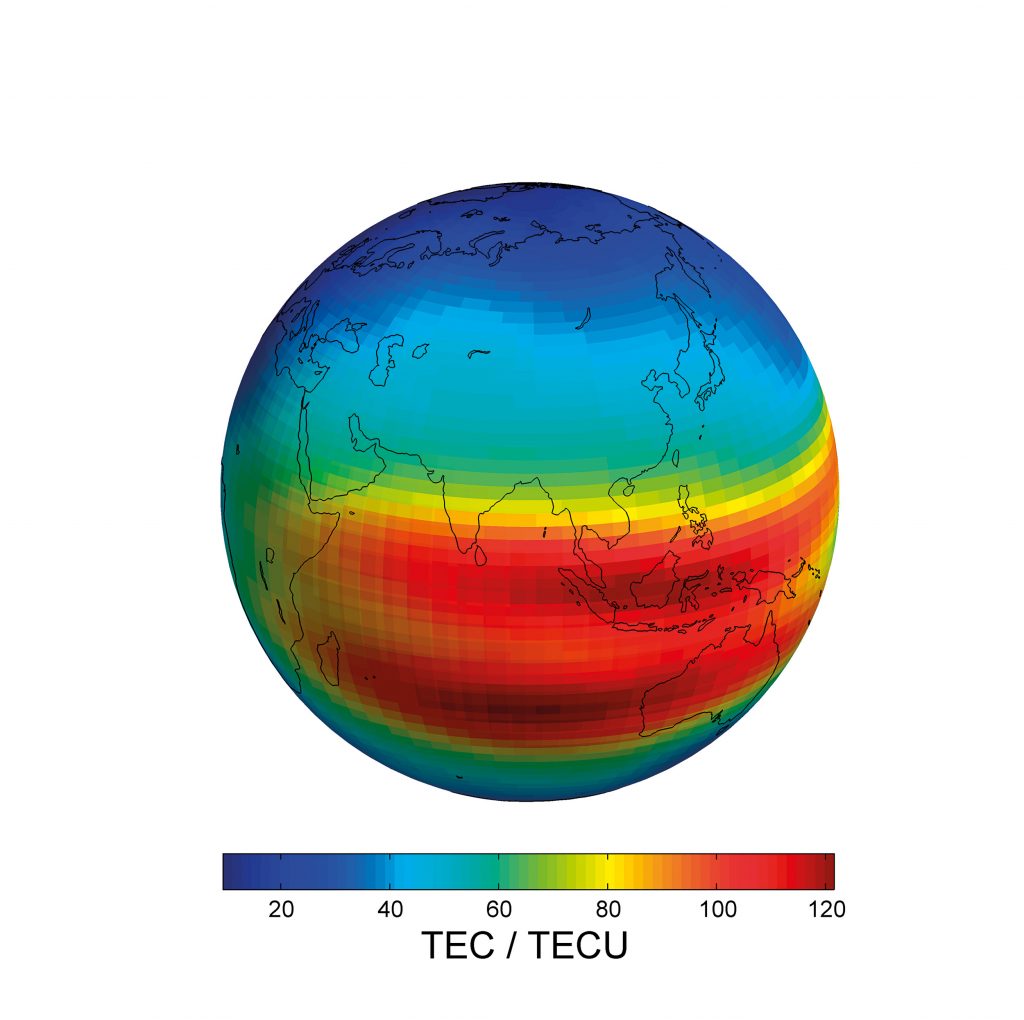Ionosphere Monitoring and Prediction Center
The IMPC is the permanent ionosphere weather service at DLR’s Neustrelitz site, where experts conduct research into the causes and effects of space weather and provide specifc information about the current state of the ionosphere. Solar storms and solar flares can lead to disturbances that damage technical systems in Earth orbit. Depending on the severity of these events they may result in the failure of global navigation and communications systems such as radio communications for civil aviation. Extremely heavy geo-magnetic storms may also cause power outages. The accurate forecasting of such eruptions is not currently possible, as the physical relationships that lead to their occurrence are still not fully understood. In order to determine whether and how strongly a solar storm will affect Earth and what can be done about this, DLR scientists use ground- and space-based GNSS data (Global Navigation Satellite System) from extensive geodetic reference networks such as IGS and from satellite missions such as GRACE.
The IMPC publishes this real-time information, forecasts and warnings about the state of the ionosphere on its website: impc.dlr.de. In this way, users are able to fnd out to what extent ionospheric interference is currently affecting their systems. The IMPC’s predecessor was the SWACI (Space Weather Application Centre Ionosphere) pilot project, a real-time data centre for ionospheric weather, funded by the Ministry of Education, Science and Culture of Mecklenburg-Western Pomerania. At the end of the project, SWACI was transferred to the IMPC with the help of DLR Technology Marketing. Europe’s only receiving station of the global real-time solar wind observation network is connected to the IMPC. A space weather centre to support aviation as part of a European consortium is planned.
German Aerospace Center (DLR)
Jens Berdermann · E-Mail: jens.berdermann@dlr.de · DLR.de/en
